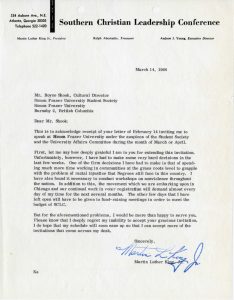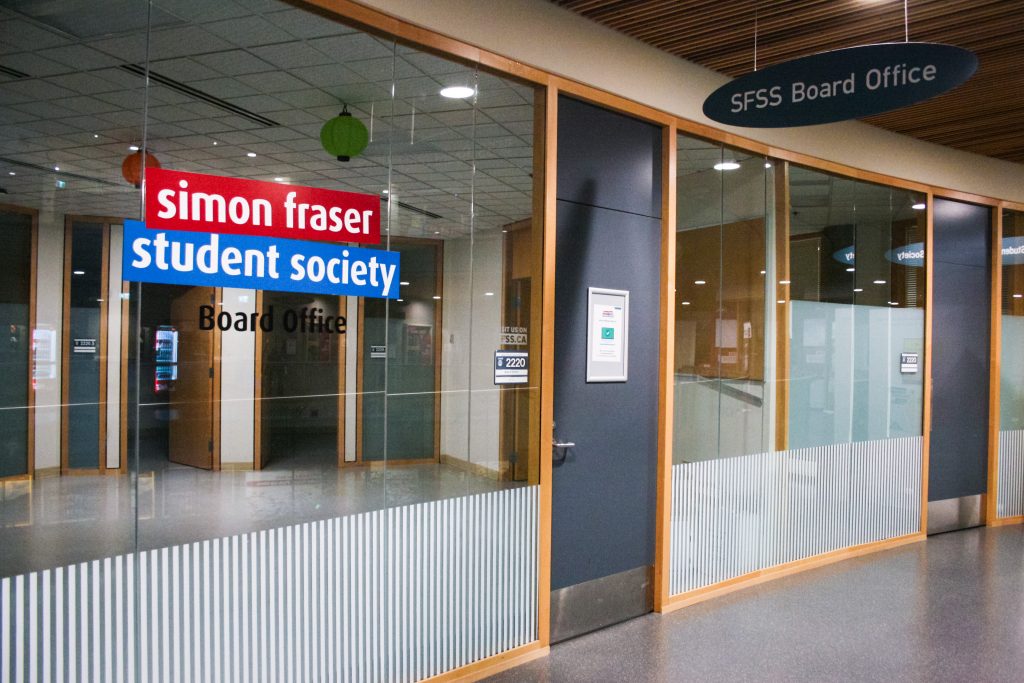Written by: Karissa Ketter, News Writer
Editor’s note: Previously, this article stated Gildersleve served on the Board in 2014. It has been corrected to 2015. Further, it was stated that Gildersleve ran with the SFU Progressives in 2019 — however slates were not allowed at that time. This has now been removed. Lastly, the elimination of positions was in the 2020/21 Board year, not 2019. This has now been corrected.
The Simon Fraser Student Society (SFSS) has a long history, originating in the 1960s. Vice-president, internal and organizational development Corbett Gildersleve said in an interview with The Peak that the SFSS is “there to advocate on behalf of students for pretty much everything from academic to financial to mental health, physical health, and social needs.”
He explained the SFSS’ ability to take action for students has fluctuated over time. With a consistently high turnover rate of Board members, “you get periods of more progressive activism, and then it goes eventually down into more centrist [leadership].” Gildersleve described these periods as business-oriented.
The origins of the SFSS began with progressivism and social advocacy. Gildersleve noted the SFSS was involved in protests, sit-ins, and a tuition wall. “Activism is part of the SFSS, from the start.”
In 1966, then-SFSS President Shook wrote a letter to Martin Luther King Jr. in 1966, asking him to speak at the institution. SFU recently released Martin Luther King Jr.’s response from their archives.

In response to the archived letter, some students commented on the noticeable shift of student activism from its origins in the 1960s to present day.
SFU student Saif Sunesara commented on Facebook, “Now students are scared to raise their voices because most of them are international students.” Students of Carribean and African Ancestry president Balqees Jama responded, “very valid. domestic students have to work in solidarity with international students to advocate.” Among lack of social advocacy, SFU students exhibit extremely low election turnout rates for SFSS leadership roles.
“The reason why [international students] are marginalized is because SFU and others, for years, really didn’t care about their positions. They were taking the whole student body — the general concept of the majority — but there’s no real student body,” said Gildersleve. He noted that within, the last few years, the SFSS has shifted back into more progressive social advocacy for students.
“You always have to ask for more than some people think is reasonable, but reasonable is subjective,” said Gildersleve.
When Gildersleve realized he wanted to get involved with the SFSS, it was a “changing moment.”
His first year as a board member of the SFSS was in 20154. During this time, he saw a change in their policy governance. Previously, the SFSS had been functioning on a model where an executive director had exclusive power and oversaw all management. Gildersleve reported this was not efficient for students “wanting to make change, or wanting to work on things themselves.” He said students ran campaigns, but found later on they didn’t have official power, for things such as increasing grants.
The Board terminated faculty and at-large positions in 2020/21 of their member positions, and 5 of their management positions. The budget was allocated to student advocacy positions such as campaign mobilization and equity officers for racialized, neurodiverse, and LGBTQIA2S+ groups.
Gildersleve said he has seen the SFSS begin to advocate for marginalized student groups during his time, for instance, when the SFSS board had declined former Rotunda groups spaces in the Student Union Building (SUB).
The SFSS now aims to take a stance on international issues, said Gildersleve. This includes the the Board releasing a statement supporting Palestinian liberation.
“To be an advocate you have to take a stance [ . . . ] If you’re not willing to take a stance, you can’t actually advocate for your members.”




